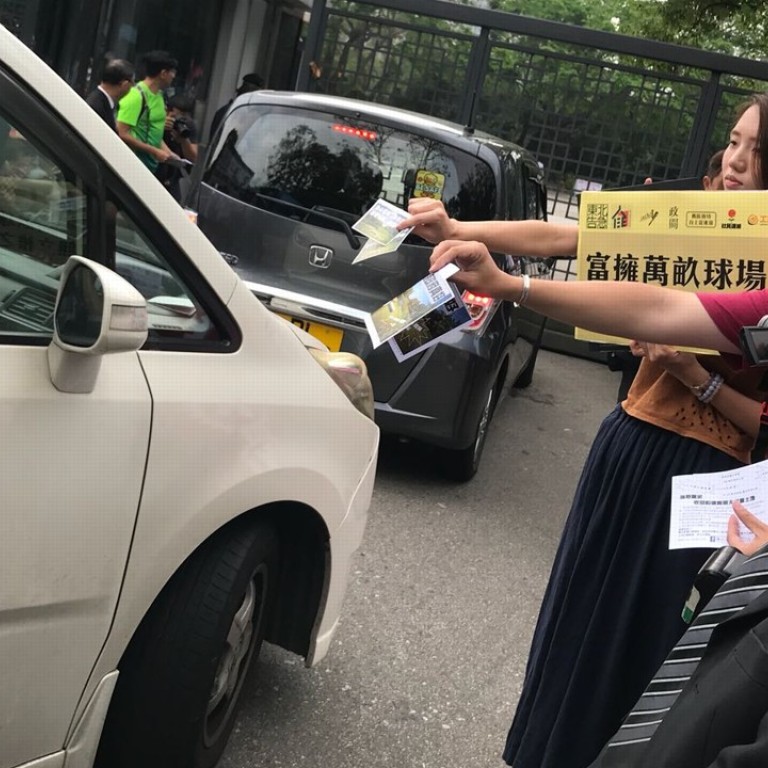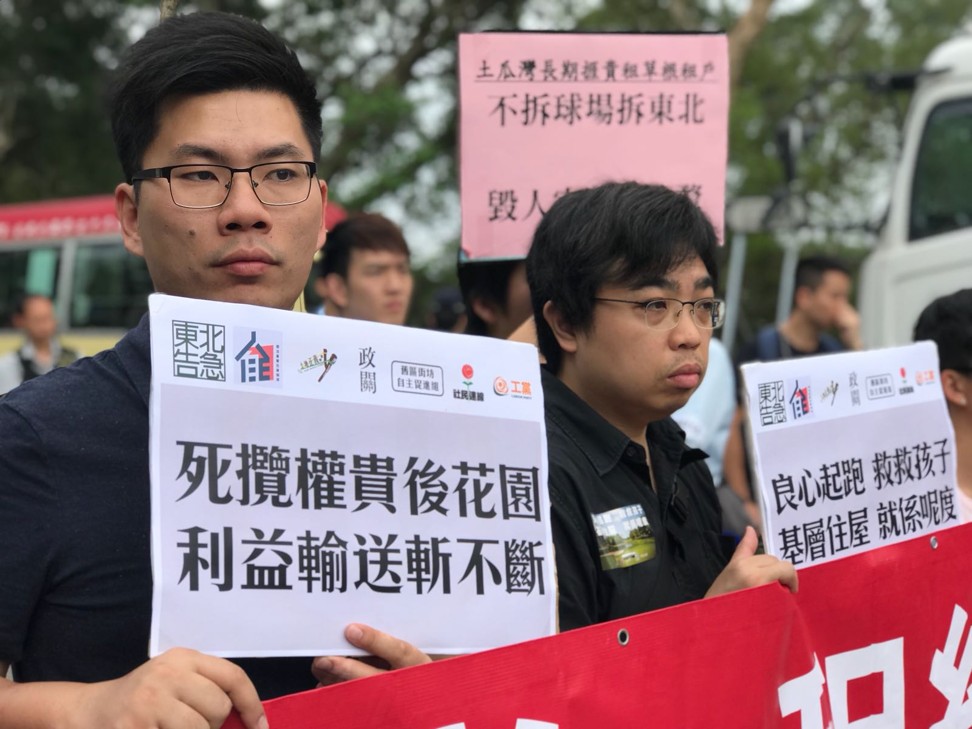
Hong Kong housing protests grow as Labour Party demands seizure of city’s most exclusive golf club
Steven Kwok channels his inner Robin Hood as fight for future of housing in the city highlights divide between rich and poor
Protesters were back out in force outside of Hong Kong’s most exclusive golf club on Sunday, demanding the government take back control of the 170-hectare property and build houses on it.
Joining the political party at the Fanling course were six other groups, including the League of Social Democrats, Land Justice League, and the Concerning Grassroots’ Housing Rights Alliance.

Speaking outside the gate of the club, Labour Party chairman Steven Kwok Wing-kin accused the city’s rich of “occupying” the plot of land.
The private golf club was established in 1889 and has some 2,600 members.
“With a rent of HK$1,000 (US$127) they have rented this 170-hectare plot … but low-income people cannot rent a 10 sq m space with the same money,” Kwok said.
Kwok was referring to a land lease granted to the Hong Kong Golf Club in 1999, which charged the club a land premium of HK$1,000. The lease is due to expire in 2020.
The club is also subjected to an annual rent of 3 per cent of the land’s rateable value.
Last year the club paid HK$2.5 million in rent, according to the government.
Time to play the game at Fanling golf course
A survey conducted by Caritas earlier this year revealed the average monthly rent for subdivided flats in Sham Shui Po – one of Hong Kong’s poorest districts – rose to HK$4,062, while the average size of subdivided flats had shrunk to 45 sq ft.
“Some subdivided flats don’t even have windows, and are plagued by fleas,” Kwok said. “What hope does the next generation have?”
Kwok said members of the pro-democracy camp had been calling for the government to take back the land for housing development since 2013, but officials kept dragging their feet.
League of Social Democrats vice-chairman Jaco Chow Nok-hang said the golf course was about the size of urban Tsuen Wan and downtown Hung Hom, with the potential to provide more flats.
“The government has no excuse to say the Fanling golf course can only provide a limited number of flats,” Chow said.
Government estimate of how many houses could be built on exclusive Hong Kong golf course ‘is reasonable’
A Hong Kong Golf Club spokesman said the public’s freedom to express their views is appreciated.
“But we hope they do not put sports and housing on opposing sides,” he said on Sunday.
The government’s Task Force on Land Supply recently launched its public engagement exercise, in which the golf course was listed as a short-term solution to increase land supply.
Other short-term solutions include developing brownfield sites.
An earlier study indicated that the 170-hectare golf course could provide 13,000 units if all the land were used for housing development.

